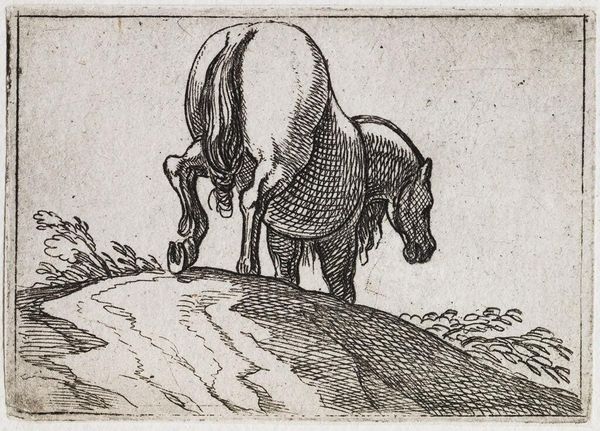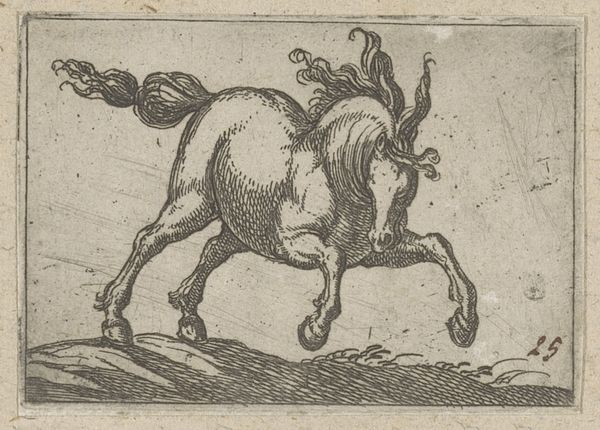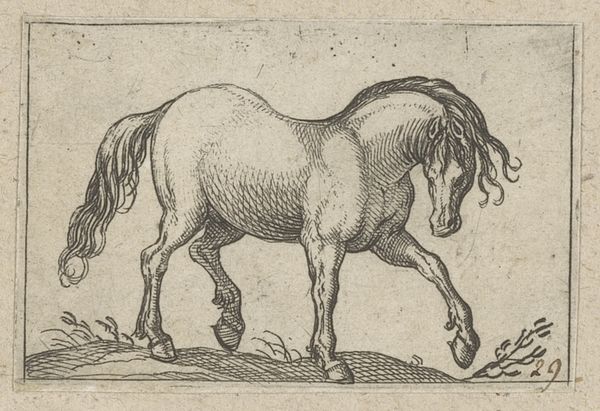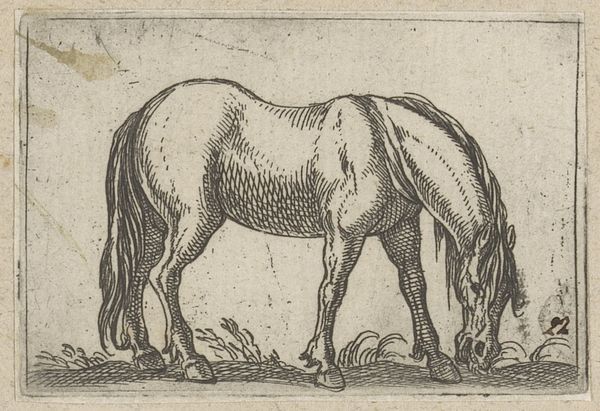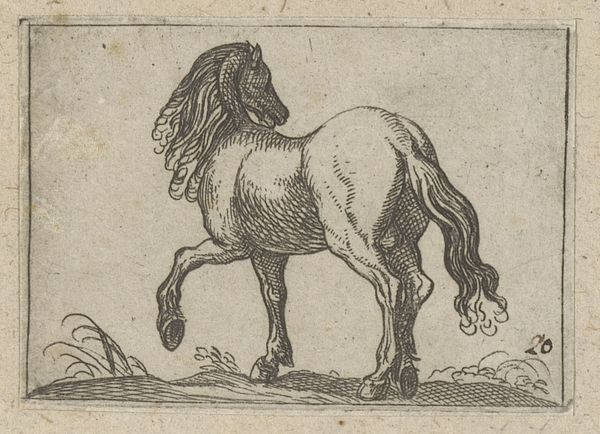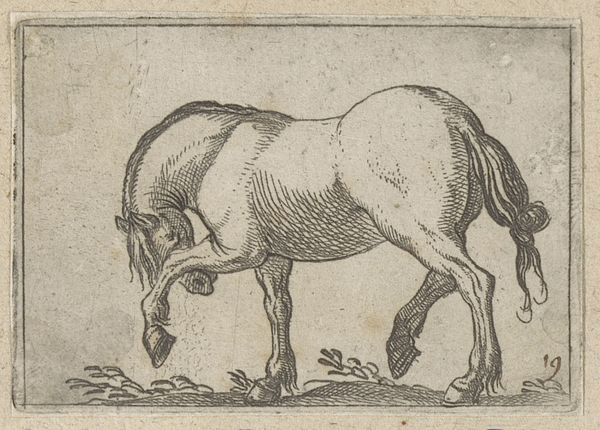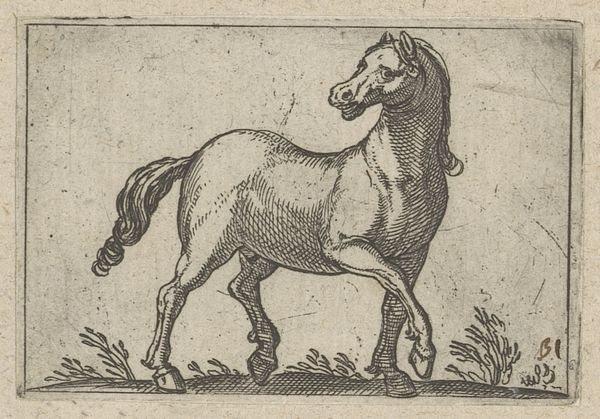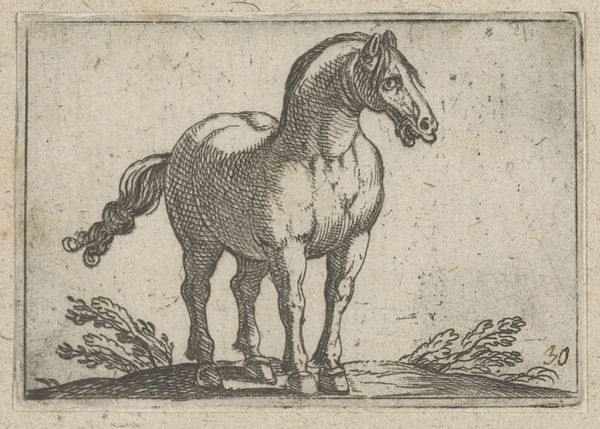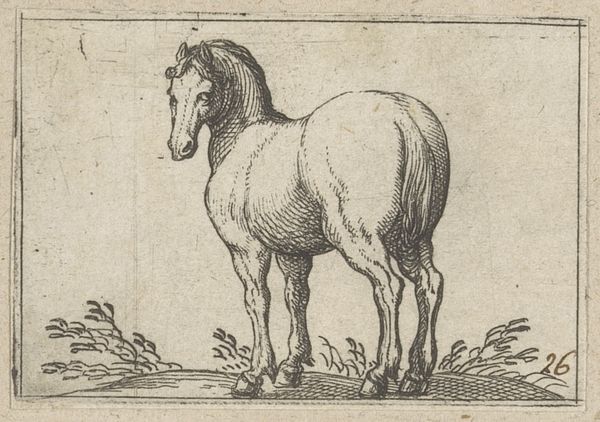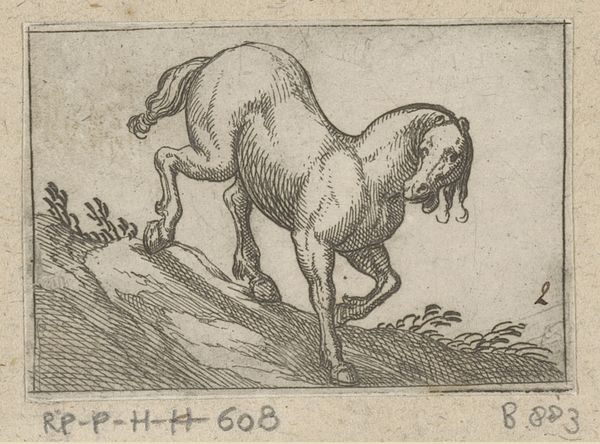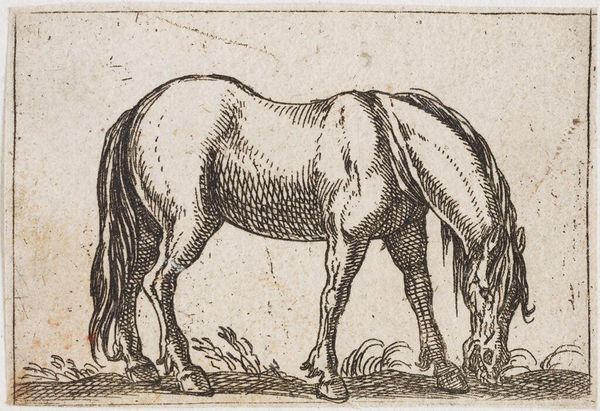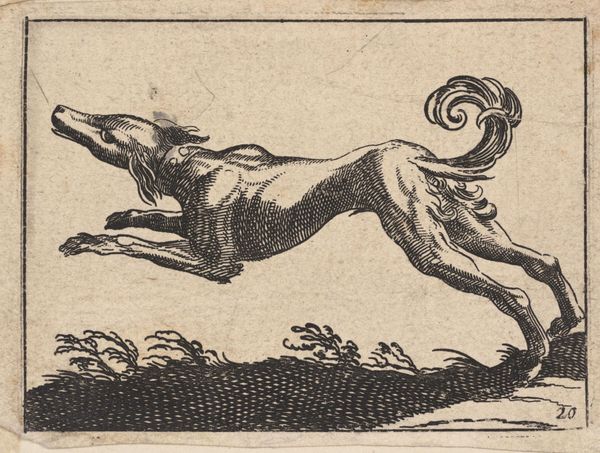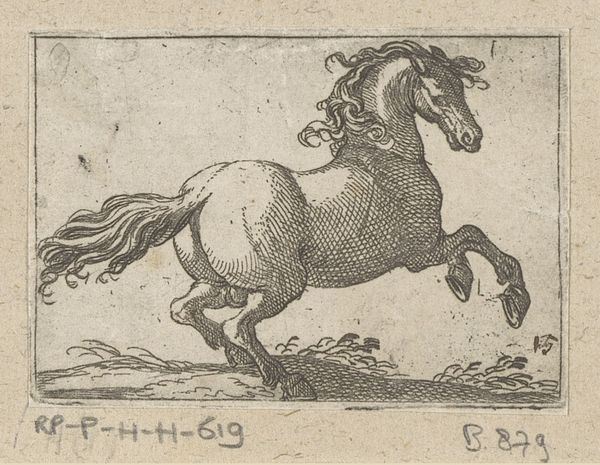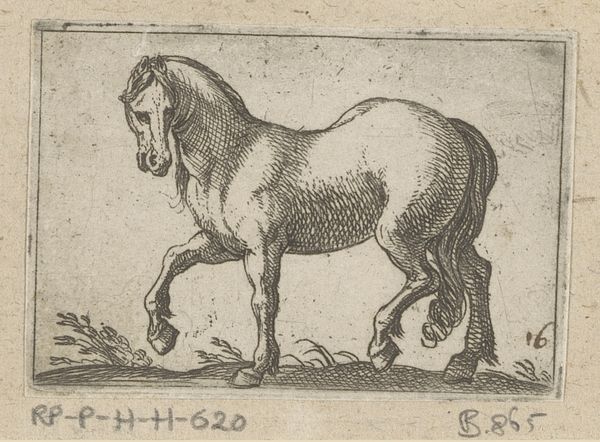
drawing, etching, ink
#
drawing
#
pen sketch
#
etching
#
landscape
#
mannerism
#
figuration
#
ink
#
pen-ink sketch
#
horse
Dimensions: height 45 mm, width 66 mm
Copyright: Rijks Museum: Open Domain
Antonio Tempesta made this small print, "Horse Walking over a Hillock, Seen from Behind," sometime before 1630, using etching. This technique involves coating a metal plate with wax, drawing an image into it with a sharp needle, then bathing the plate in acid. The acid bites into the metal, leaving behind an incised image. Look closely, and you'll see how Tempesta used a network of fine lines to build up tone and texture. This meticulous process demanded skill and patience, turning metal into art. The network of crosshatched lines define the horse’s powerful rear and muscular form. But the technique also speaks to the culture of printmaking at the time. Etchings like this were relatively inexpensive to produce, making art accessible to a wider audience. So, while the image itself might seem simple, the story of its making connects us to broader issues of labor, craft, and the democratizing power of print.
Comments
No comments
Be the first to comment and join the conversation on the ultimate creative platform.
